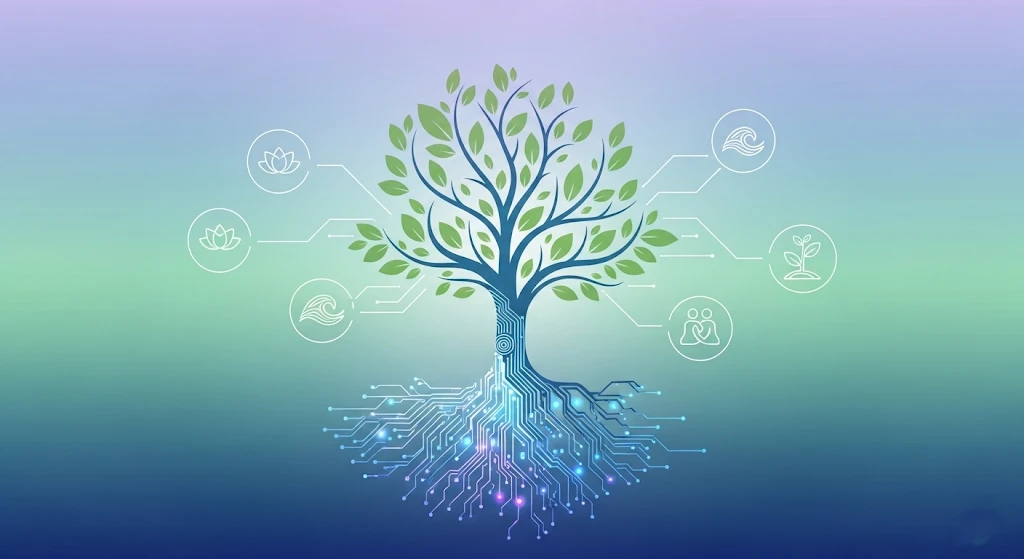According to a mental health care portal, “Having a mental disorder isn’t easy, and it’s even harder when people assume you can just get over it.”

That’s true. It is the prevalent stigma that keeps the sufferers from approaching the right people for the treatment of their mental health issues. But today’s technology is playing a significant role in destigmatising psychological issues by introducing various mental health apps.
These apps are easily accessible for anyone trying to cope with mental health problems, and are even believed to be effective in tracking the therapy process of people suffering various types of mental health disorders. According to the National Institute of Mental Health, tech-based solutions for mental health prove to be beneficial for a variety of psychological problems because of anonymity, 24-hour services, and lower costs.
These apps, now broadly categorized under “telehealth technology” can address various types of psychological issues of individuals. This kind of technology isn’t slated to replace physical healthcare infrastructure, and at the state it’s in right now, acts more as a supplement to existing healthcare practices rather than as substitute “telemedicine”.
Some of the apps that support psychological health and assist users in documenting their mental health are as follows:
Mood Tracking Apps
Similar to a journal that allows you to vent your thoughts, emotions and frustrations, there are apps that let you keep track of your mood. Providing a good alternative to a journal that you may not have with you all the time, one can access mood tracking apps anytime and anywhere. For people with anxiety, bipolar disorder and depression, these apps help them learn about the factors that trigger certain behaviours in them.
[cta_blog_inner]
The following are a few important apps that you can use to track your mood:
This app helps users rate their moods at various points in the day. Particularly geared towards people that suffer from mood fluctuations, or are in an environment where they can be triggered.
Through social media connections, users can also share and receive feedback from other users.
From a screen of options, this app allows for quick mood recording. In addition, brief notes about events can also be added to remember the mood fluctuations.
The data collected is converted into statistics, and can also be shown on a calendar.
3. Optimism
This app assists users in monitoring their moods, and also helps them figure out mental health strategies.
Emotional triggers are also tracked by the app. In case it detects a decline in mental health, warning notifications are sent to the user.
PTSD Management Apps
These apps help people who are suffering from Post-Traumatic Stress Disorder (PTSD) ― a disorder that may develop in people who have experienced a shocking, scary, or dangerous event. The apps can help you with keeping track of your symptoms and manage your stress levels accordingly. They provide you with the required help and support, and information on your condition. Some apps even come with a checklist of symptoms for self-diagnosis, allowing you to figure out the seriousness of your condition.
1. PTSD Coach
Besides providing authentic information about PTSD and its treatment, with tools available for tracking symptoms. This also gives a checklist that helps support users in their recovery process.
2. Mindfulness Coach
This is an app helpful in coping with stress and unpleasant feelings.
It provides information about benefits of mindfulness, and details guides about meditative exercises.
3. Head Space
The user can get access to instructions about meditative exercises. It also, can track health performance.
Online Therapy Apps
Online therapy apps help users in getting access to professionally licensed psychotherapists through mobile applications.
The following are useful apps for those intending to receive online therapy:
A therapist is recommended to the user by identifying their needs. Users then receive regular responses from their therapists, and are also given the facility of a private chat-room to communicate freely with their therapist.
2. Breakthrough
Users can find a therapist based on their preferences and variables, like location and speciality.
Users can look at the pricing information while browsing, and can also send messages to therapists directly to check if they meet your requirements.
3. 7 Cups
Allowing users to text-chat with therapists anonymously, users can also take part in helping others with their mental health issues.
The app includes mental exercises and activities for coping with stress and anxiety.
Stress Management Apps
Stress management apps help in managing stress in your daily life by letting you keep track of stress levels. They also suggest techniques to cope with your stress and anxiety, helping to promote positive thinking.
Some of the apps that can help you manage your stress levels are as follows:
1. Sanvello
Built on the principles of Cognitive Behavioral Therapy, it allows the user to access tools for anxiety, stress and depressed mood.
Sanvello suggests users address issues with activities like meditation, breathing exercises, and relaxing. It also gives users feedback and reminders.
2. What’s Up
This informs users about common thinking errors, suggesting breathing techniques for relaxation, and also providing motivational material and positive quotes.

Providing information about the effects of stress on the body, Breathe2Relax allows users to learn stress management skills, like diaphragmatic breathing, through proper instructions.
Telehealth: The Future of Diagnosis?
Commenting on the mental health apps, a psychology doctor from Florida, Dr. Sal Raichbach says:
“These apps are a safe space for individuals who may be too ashamed to admit their mental health issues in person or who may feel that they will be negatively labelled or stigmatised by others.”
For many unexposed to the world of psychological disorders and mental health concerns, directly resorting to mental health specialists isn’t the common course of action. Unlike other illnesses and conditions, one’s friends and family do not necessarily support and encourage people that believe they may suffer from a debilitating headspace.
That’s where these apps act as vital resources, be it for information, self-improvement, or access to some form of mental health therapy. Many users also use apps to get themselves comfortable with the language of mental health wellness – a comfort that eventually builds their confidence to seek established therapy and counselling professionals.
This kind of telehealth technology is especially effective at reaching people far away from physical mental health infrastructure. Telehealth initiatives that allow for access to mental health counselling through these apps become a means of helping people with their emotional and psychological health, even if they’re from far-flung corners of the world.
One understands the need that those behind such technological advancements paid heed to when they came up with mental health apps. In a world where mental health conversations are still a a taboo, and with a mental health infrastructure that’s under-funded and sparse, these apps help a lot of people empower themselves and their well-being.
Mental health issues like mood swings, anxiety, depression, PTSD, schizophrenia, and even the pursuit of improving one’s general cognition – apps like these can help engage with so many of these conditions.
For people looking to avert negative thought processes, these apps might just be the best smartphone feature they can get. Although it’s far-fetched to suggest telehealth practices will ever replace regular medical health, the years to come are likely to see more upgrades to this field that help make these apps even more useful for psychological wellness.
Name*
Email *
Phone
Website
By checking this box, you confirm that you have read and are agreeing to our Privacy Policy.


